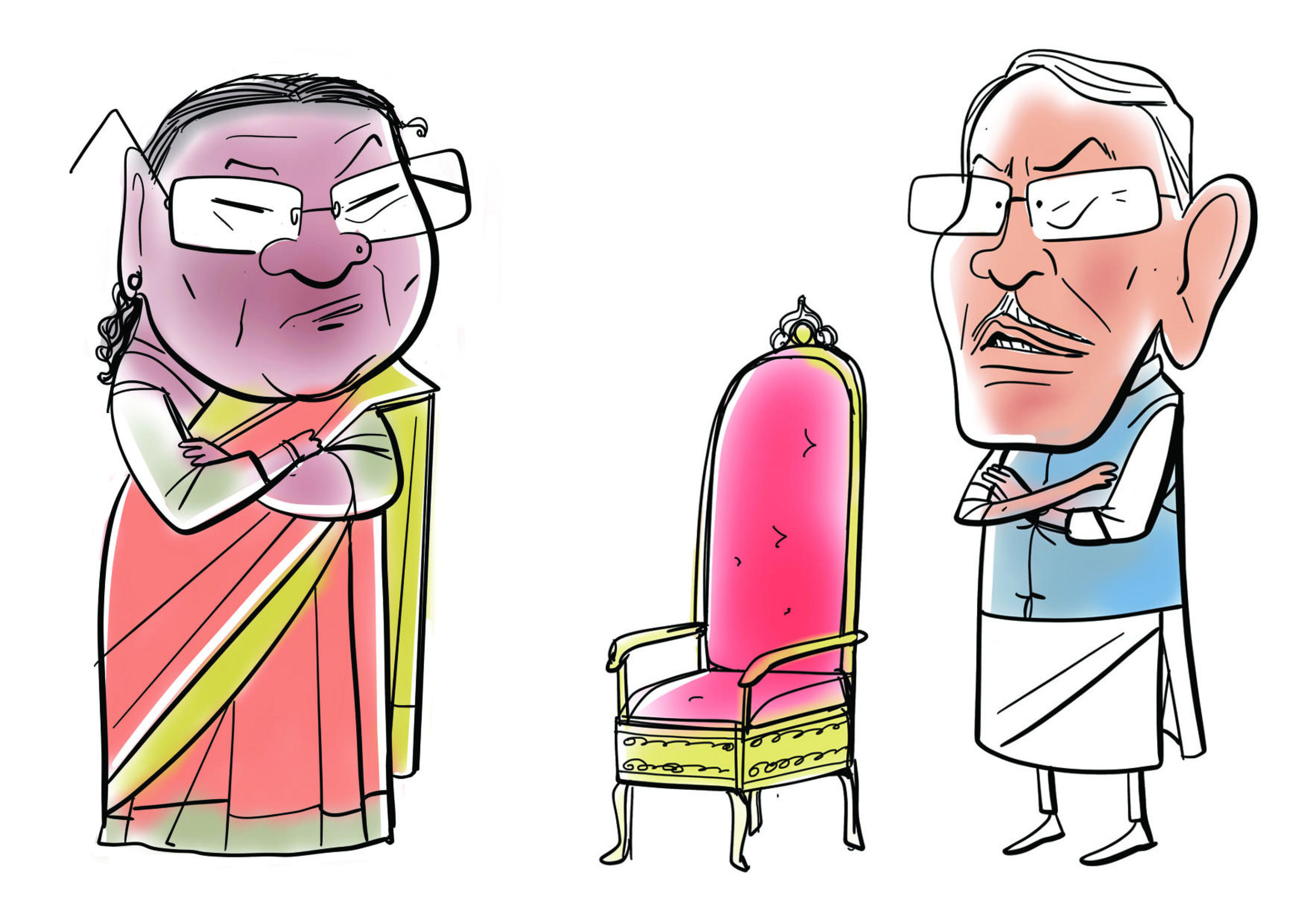

Even before the first vote is cast on July 18, the outcome of the presidential election is known to all. In the afternoon three days later (June 21), when the last vote will be counted, India will be just four days away from a tribal woman – Droupadi Murmu – taking oath as the First Citizen of the country. The presidential elections are usually no cliffhanger in India. The only exception was the elections in 1969, when Indira Gandhi stumped her own party to call for a conscience vote, when she wanted to corner her colleagues to help V V Giri win.
With the electoral college numbers in favour of the BJP-led NDA, Murmu started on the front foot. She needed just around 9,000 more votes that the NDA could gather from friendly parties like BJD and YSR Congress when the elections were announced on June 9. The BJP’s announcement of her candidature on June 21 came six hours after the Opposition chose Yashwant Sinha as its gladiator.
It may be for the first time the media and political pundits could correctly guess Narendra Modi’s choice. In 2017, Ram Nath Kovind came from nowhere to occupy Rashtrapati Bhavan. But this time Murmu was top on the speculation chart. A tribal could take the road to Raisina Hills – political pundits put their bet on Modi’s penchant for symbolism.
But the die was cast for the unravelling of the Opposition, which wanted to set the agenda. They did not want a repeat of 2017 when they chose to field Meira Kumar, a Dalit, against Kovind. The argument was that whoever the ruling party fields will be a BJP person irrespective of whether the candidate is a woman, a tribal or a minority community member. Argument was solid but all those in the Opposition appeared not to have the stomach to take it forward.
Hours after supporting Sinha, many had second thoughts as Murmu’s name was announced. The rebellion in Shiv Sena forced Uddhav Thackeray, who had pledged support for Sinha, to change tacks. Parties like Akali Dal too pledged support seeking to find a way back to the NDA. UPA ally JMM, which has substantial tribal votes in Jharkhand, did not blink an eye to jump the ship.
Trinamool Congress, which sponsored Sinha’s candidature, did a somersault. They did not dump Sinha, but Mamata Banerjee said the Opposition could have supported Murmu if the government had approached them before. West Bengal has a significant tribal population. Sinha flew to Srinagar to show solidarity with Kashmiris though there were no votes except for three National Conference MPs, who have a vote value of 2,100. Sinha would argue it was symbolic and politically significant. But he neither kick-started his campaign from his home state Jharkhand as scheduled with JMM playing truant, nor visited Kolkata as Mamata did not want to upset her vote-bank. Sinha will be going to Jharkhand only two days before the polling.
The Opposition initially wanted NCP supremo Sharad Pawar to contest. He was the best bet to put the Modi government in a spot, but Pawar did not bite the bullet. National Conference patriarch Farooq Abdullah too refused. Mahatma Gandhi’s grandson and former Governor Gopalkrishna Gandhi’s answer too was a no.
Planning an ideological ‘Gandhi versus Godse’ battle against the Hindutva-inspired BJP, the Opposition then chose Sinha – a former BJP Minister, who had endorsed Modi’s prime ministerial bid, but fell out with him after being denied a Lok Sabha ticket and took on the Sangh politics. The move exposed a lack of choice and imagination. Opposition leaders tried to sugar coat it by talking about Sinha’s anti-Modi stance since at least 2018. To give credit where it is due, Sinha did attempt to corner the Modi regime during his campaign.
If the Opposition lost the perception battle as it failed in countering BJP’s plank, there were troubles within. Trinamool Congress wanted to show the Congress its place. TRS did not want to share a stage with Congress. AAP is keeping the Opposition on tenterhooks by declaring its support for Sinha openly. AAP leaders will meet on Saturday and Opposition parties are still not sure about which way it will turn. The Opposition leaders may not have forgotten that one line in their joint statement, which they issued after announcing Sinha’s candidature – we assure the people of India that the unity of the Opposition Parties, which has been forged for the Presidential Election in a spirit of equality, common commitments and consensus-building through dialogue, will be further consolidated in the months ahead.
